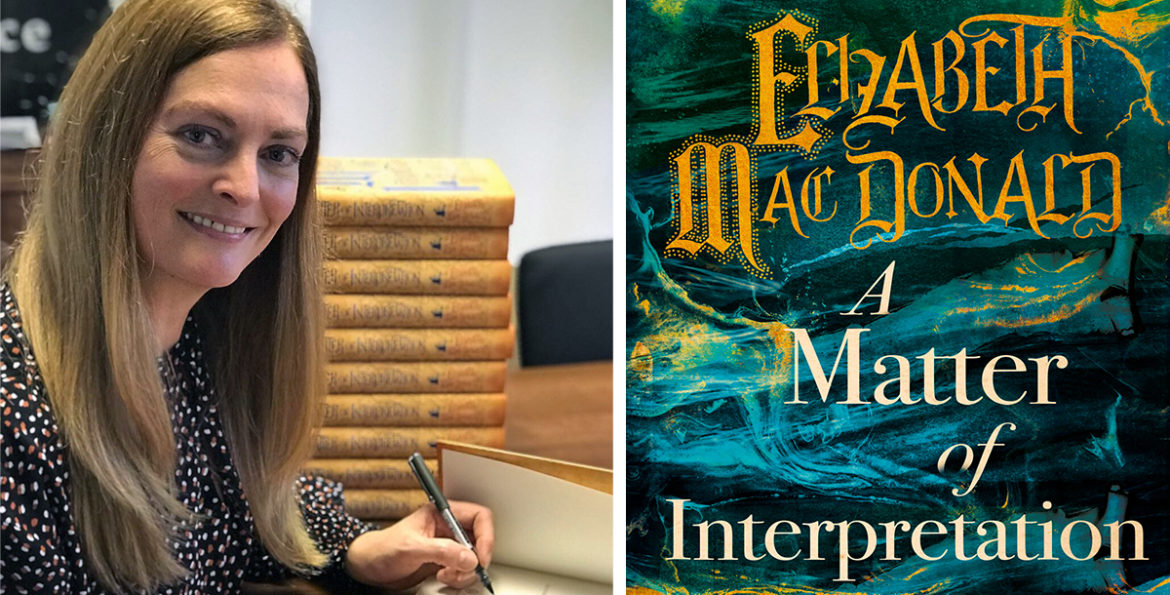

Elizabeth Mac Donald: The Importance of Historical Fiction
The Importance of Historical Fiction
Knowledge is power. Ideas matter. But communicating them in the age of populism and fake news is challenging. This may seem like a peculiarly contemporary problem, but as I was researching my historical novel, A Matter of Interpretation, it became obvious to me that not only was the struggle to maintain control over knowledge as old as the concept of society, but that populism was also at work. The devastation I saw it wreak in the far-off thirteenth century was a chilling wake-up call.
I have always been fascinated by the figure of Frederick II, Holy Roman Emperor, and his doomed attempt to create a humane, enlightened empire with open access to learning. I began to explore his court in Palermo, Sicily, noting how the coming together of the disparate strands of Sicilian identity – Norman, Greek, Pisan, and Saracen – had, under Frederick’s rule, led to a high level of civilization.
Looking into Frederick’s childhood, I came across the barbarian outsider I knew would become my protagonist. The gifted but wayward Michael Scot had achieved fame as a mathematician of brilliance at Oxford and was called by the pope to be tutor to the young Frederick. This Scottish cleric was also proficient in Natural Philosophy and, when he discovers a manuscript written in Arabic in the cathedral library in Palermo, he understands that it contains some of Aristotle’s lost knowledge in this field. Frederick commissions him to pursue this crucial work at the renowned Translation School in Toledo.
From Toledo, Michael Scot travels to Córdoba, capital of the Western Caliphate, to study more of the works of one of its most famous sons, Averroës, who is the Arabic filter through which Michael Scot has been recovering Aristotle. In the Caliphate there has been an ongoing feud between the theologians and the philosophers, or faith and reason respectively. To Michael Scot’s consternation he is told that nothing remains of Averroës’ life’s work in Córdoba: all his manuscripts have been burnt and not even the fact that the caliph was his father-in-law sufficed to save him. The theologians had used the people in their feud with the philosophers, imputing all manner of abstruse, irreligious and blasphemous beliefs to the latter faction. In this way an abyss was created between the people and the philosophers, whose voice of reason was no longer trusted but seen as deviant and corrupting. Instead of providing strong leadership at this crucial juncture, and even though he had previously esteemed the philosophers, the Almohad ruler in al-Andalus pandered to the violence and fear of the people, allowing the philosophers to be stoned and exiled, and their books burnt. In this way the balance of power in the administration of knowledge was tipped overwhelmingly in favour of the theologians.
Christendom was experiencing similar upheaval, yet the early thirteenth century saw the balance of power in the administration of knowledge tip in the opposite direction. The rise of the universities as autonomous bodies of learning removed knowledge from the control of the bishops. Where previously Christendom had had two administrators of knowledge and power – Regnum and Sacerdotium – now Studium was added to the equation, providing a necessary check to the hegemonic aspirations of the other two with far-reaching implications.
I feel strongly that, as Santayana has it, ‘If we do not remember the past, we are condemned to repeat it.’ That is why historical fiction has its place in the scheme of things. Time is not a straight forward-moving arrow; I see it like the dual-stranded helix. The past may be visited and some truth gleaned there that can inform our present and shape the future.
Elizabeth Mac Donald‘s debut novel, A Matter of Interpretation, is now available in paperback by Fairlight Books.














